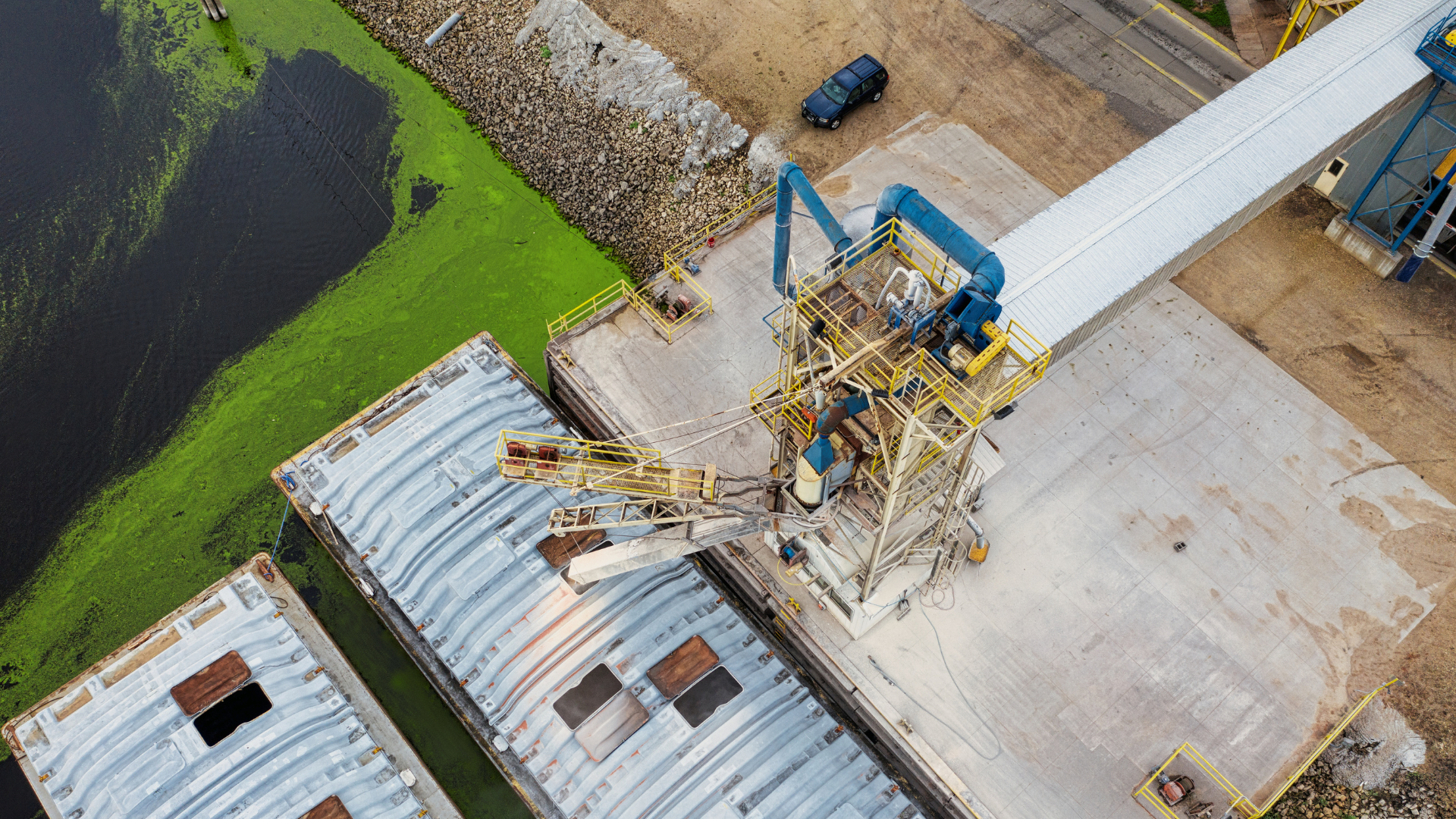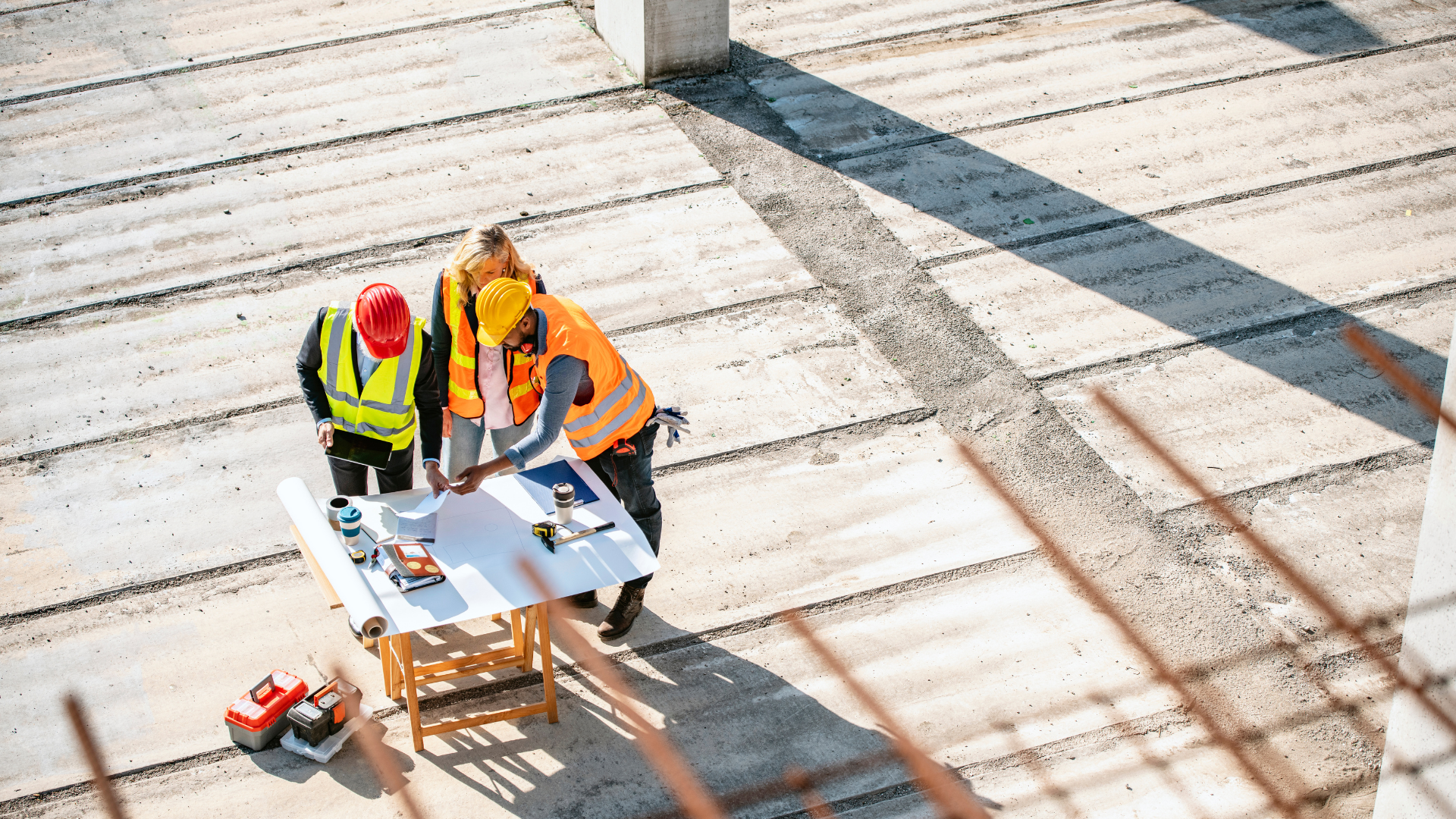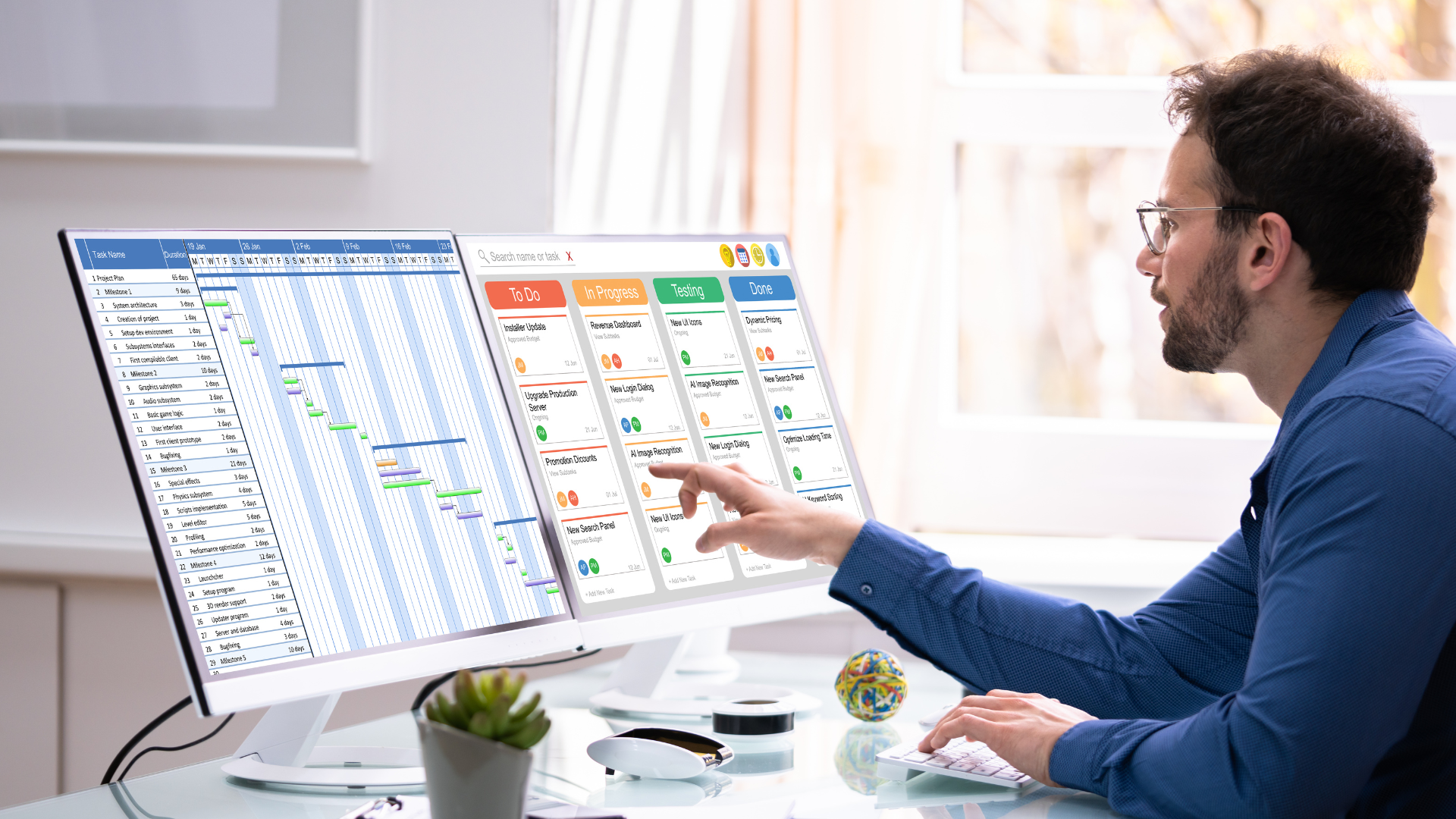Construction CRM
We repeatedly hear the same story from construction teams about how a lead slipped through the cracks, a project update got buried in someone’s inbox, or a subcontractor missed a deadline because the schedule was stored in another spreadsheet.
It’s not laziness. It’s the system, or rather, the lack of one. The construction industry in 2025 is becoming more fragmented than ever. Teams will be remote, clients
will want real-time updates, and projects will be more complex.
Did you know that large construction projects run 20% over time and up to 80% over budget? Why? Construction businesses face significant challenges in today’s economic environment, which hinder their ability to stay financially viable and competitive.
This blog explains why a Construction CRM is the bare minimum if you want your construction company to stay ahead.
Key Takeaways
- A CRM helps you keep track of leads, projects, and tasks in one place.
- It saves time by reducing mistakes and repetitive work, and makes your team faster and more efficient.
- It helps you with customer relationship management and win more work.
- Constructionbase is made for real construction teams, not just office use.
- In 2025, using a CRM is how smart teams stay ahead.
Teams Are Out of Sync? You Probably Need a CRM
Many construction contractors rely on multiple tools, which leads to miscommunication and delays.
For instance, sending the wrong blueprint version to the site or updating the timeline without telling the rest of the team. Sometimes, a lead is marked 'in progress' in one system but 'cold' in another. All these mistakes lead to your work stalling and deadlines slipping.
Here’s the problem: Your team is out of sync because they work in messy systems. One update is in a spreadsheet, another in a WhatsApp message, and a third in someone’s head.
A construction CRM brings everything together:
- One place for all communication — so updates don’t get lost.
- Shared dashboards and schedules — so no one’s left guessing.
- Live tracking and role-based access — so the right people always see the correct info.
When teams are synced, project management improves, the sales process becomes smoother, and clients stay informed.
What It’s Costing You to Not Use a CRM
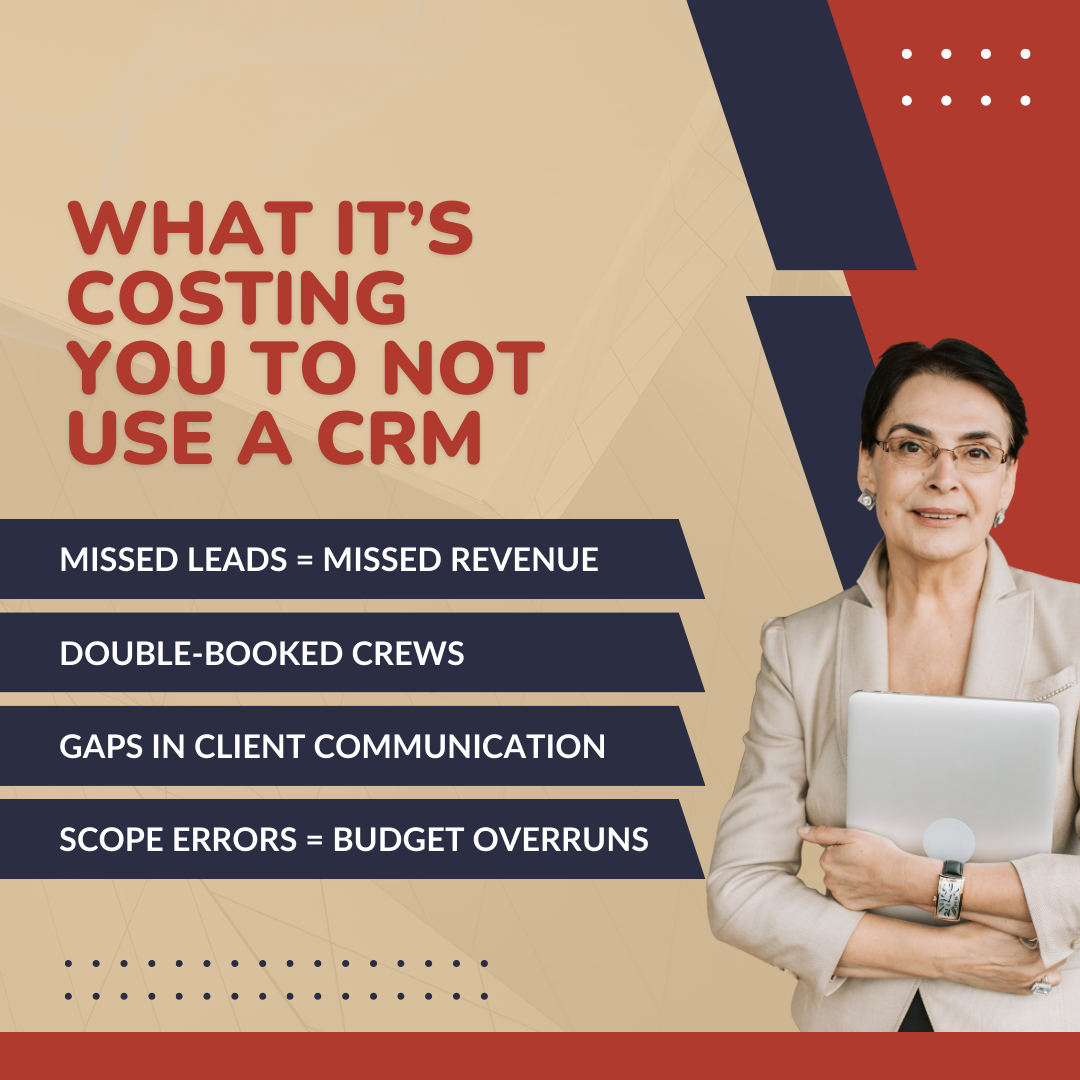
It’s easy to think, “We’re managing fine,” until you see the hidden costs. Old Systems don’t just slow you down. They eat into your profit, frustrate your team, and erode client trust.
1. Missed Leads = Missed Revenue
Every lead that isn’t followed up on is money lost. Without a CRM, tracking client data becomes difficult, which in turn causes leads to get lost.
2. Double Bookings & Scheduling Confusion
Assigning the same crew to two different sites is easy without a centralized schedule. These slip-ups delay progress, frustrate clients, and reflect poorly on your brand.
3. Communication Gaps Break Trust
If a client calls for a status update and your team has to “check and get back,” that’s a red flag. A CRM gives you real-time visibility, so answers are ready when clients ask.
Learn how to apply this in real projects, check out: Enhancing Client Relationships with Construction CRM Strategies
4. Budget Overruns from Avoidable Errors
Missed deadlines, incorrect orders, and scope miscommunications all cost money. When your systems don’t talk to each other, small mistakes turn into expensive problems.
What a CRM Actually Fixes That Nobody Talks About
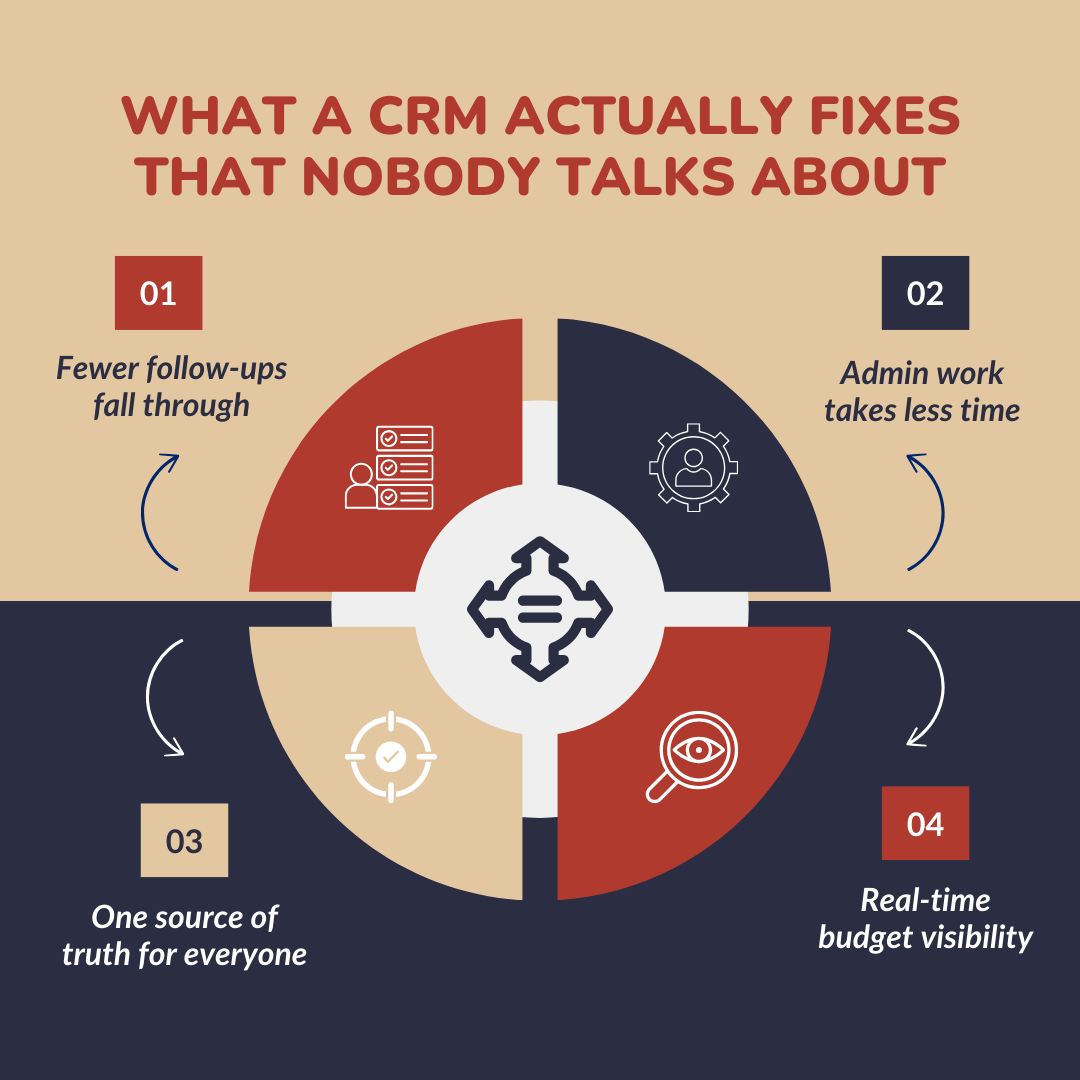
Most people think CRMs are just for customer management. In reality, a good construction CRM simplifies sales management by giving your team clear visibility into follow-ups, status updates, and conversions. Here’s what it fixes behind the scenes:
1. Leads Stop Falling Through the Cracks
No more guessing who followed up and when. All customer interactions, from lead calls to post-project feedback, are logged and visible to your team.
According to Ruler Analytics, 82% of leads are lost due to poor follow-up. A CRM helps ensure that no opportunity goes unnoticed.
2. Admin Work Becomes Less Painful
A CRM automates manual and repetitive work, saving your team time and energy.
Instead of chasing paperwork or duplicating updates across tools, your team enters data once, and the system updates everything else.
3. Everyone’s on the Same Page
Sales, operations, and site supervisors work with the same data.
There are no more mix-ups or outdated information. When your communication, tasks, and files live in a centralized location, your team works faster and with fewer misunderstandings.
4. You Get Real Control Over Finances
With built-in financial management features, you can see what’s been quoted, what’s pending, and where the money’s leaking.
Real-time visibility into your budget, billing, and cash flow means you can react quickly and avoid surprises.
It also helps you build more accurate estimates, leading to better margins and more client trust.
What the Next 5 Years Look Like (With or Without One)
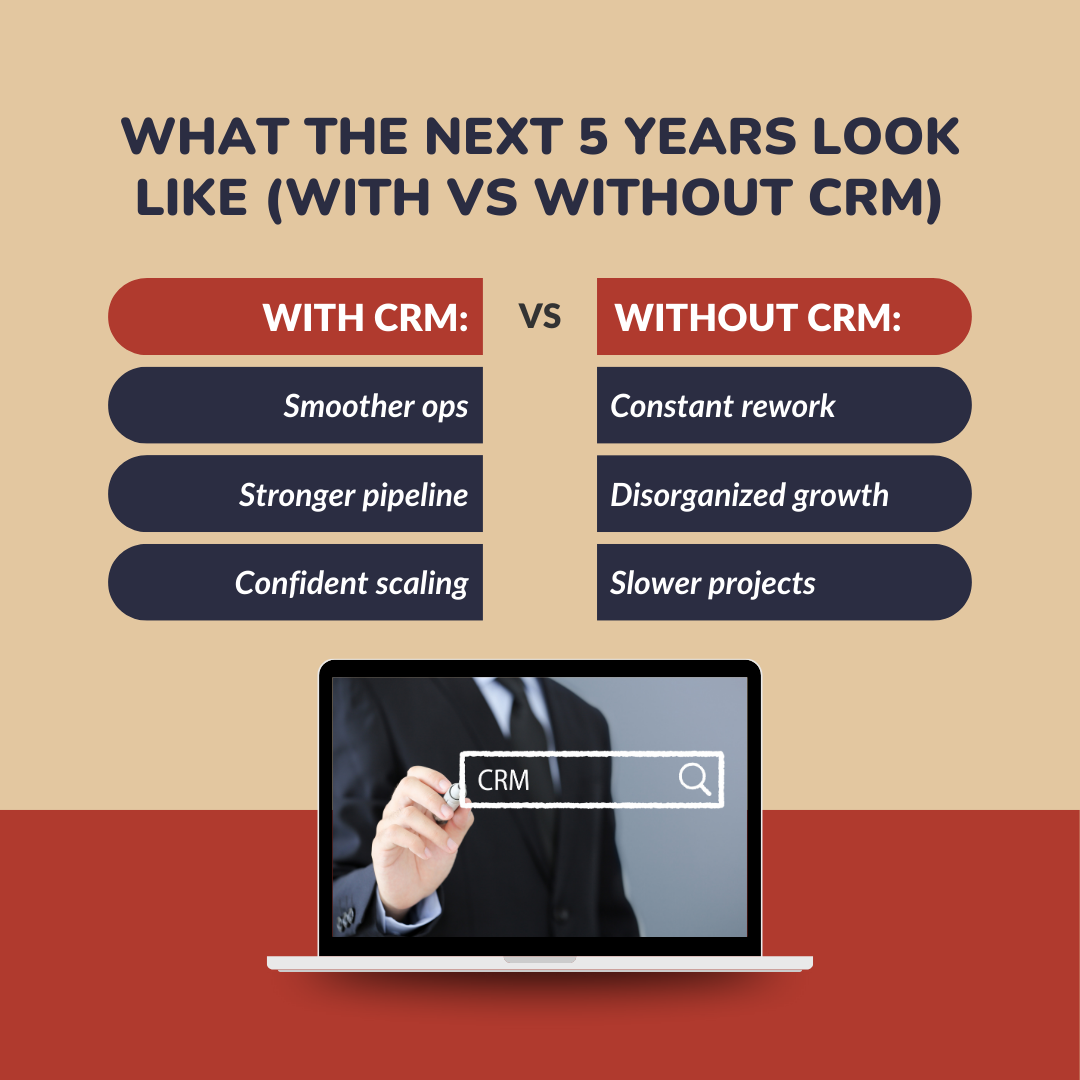
How you manage your operations today will shape how competitive you are tomorrow. Here’s what your business could look like depending on whether or not you adopt a CRM:
If You Invest in a Construction CRM software:
- Your team works from a centralized system, which results in less confusion and fewer delays.
- Keeping everyone in the loop strengthens client relationships through better follow-ups and communication.
- Proposals, schedules, and budgets become easier to track and update.
- You get visibility into pipeline management, helping you plan for growth.
- You’re equipped to take on more jobs with confidence.
Want to see how to get your teams actually to use it? Read: Training Your Team to Maximize Construction CRM Benefits
If You Don’t:
- You’ll keep juggling spreadsheets, texts, and scattered files.
- No Central System will continue draining time and team morale.
- Missed follow-ups, rework, and budget overruns will remain common.
- Scaling your operations or keeping up will get harder with each project.
Firms investing in CRMs like Constructionbase set themselves up for long-term business development, not just smoother operations.
How Construction CRMs Power Growth, Not Just Organization
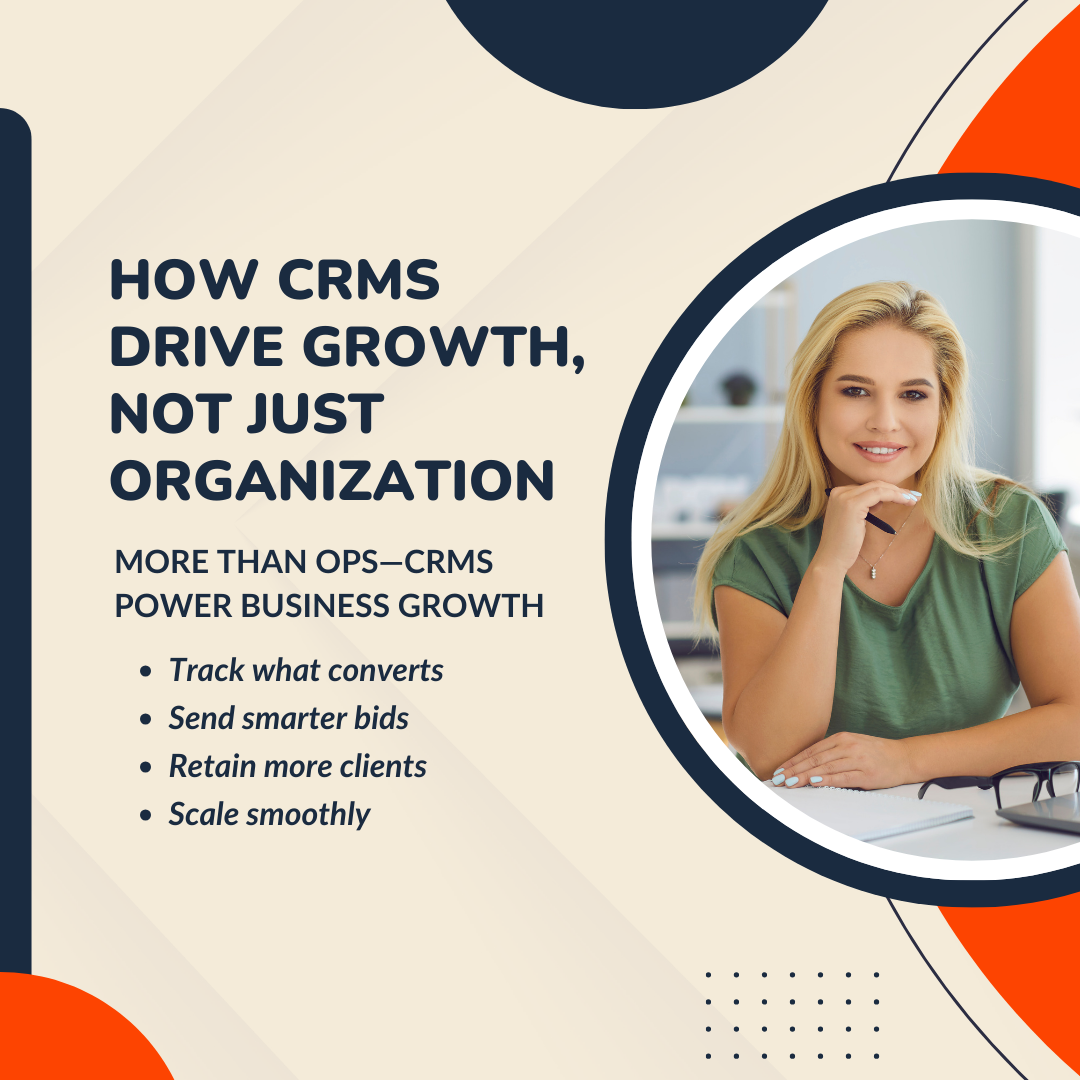
A construction company in the USA switched to Constructionbase after struggling with lead tracking and crew scheduling. Within months, they saw a 35% drop in missed follow-ups and significantly fewer job site clashes. The result? More jobs completed, less stress, and no extra hires needed.
Many teams assume a CRM is just for staying organized, but the real value lies in how it becomes the engine behind your growth. It helps you build a stronger sales pipeline by tracking every opportunity from inquiry to close.
While earlier we talked about day-to-day fixes, this is about long-term acceleration.
1. Lead generation turns proactive.
CRMs help you identify trends in where leads come from and what converts. Over time, this allows you to focus on high-quality sources and build a repeatable sales engine.
2. Proposals become strategic tools.
Access to historic project data allows you to create faster, smarter, customizable proposals tailored to client pain points and budgets.
3. You track what matters.
You can monitor sales performance across teams and adjust strategies based on what’s working. With the right CRM, you can make data-driven decisions based on real-time insights, not gut feeling.
4. Stronger client retention
With clear communication and better timelines, you build trust, leading to repeat business and long-term contracts.
5. Operations scale smoothly
As your project load grows, the CRM adapts without slowing you down.
Bottom line: A suitable construction CRM doesn’t just help you stay afloat. It turns your operations into a growth-ready machine.
You may also find the Key features to consider in construction CRM systems helpful.
Thinking About CRMs? Here’s What You Actually Need
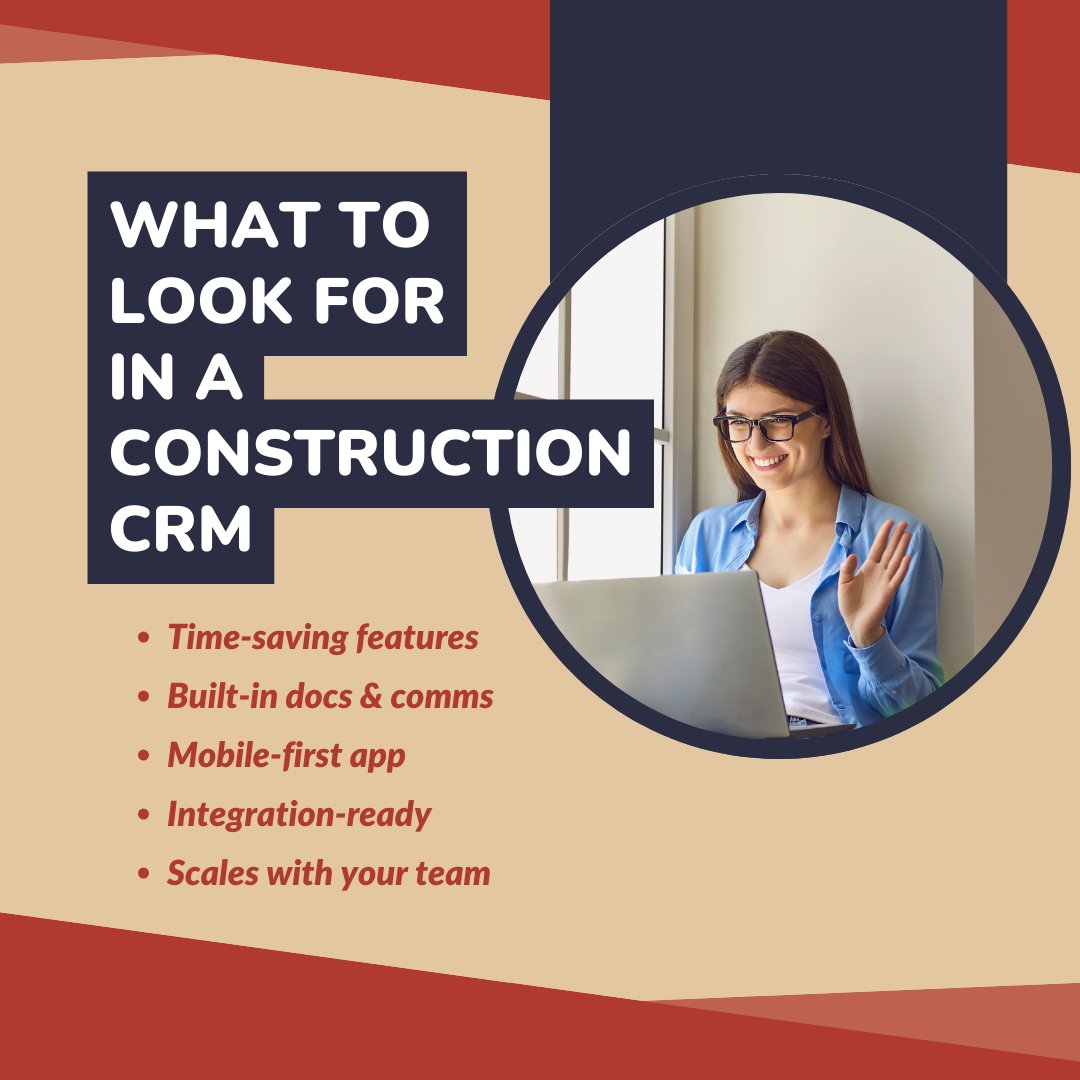
Choosing a CRM can feel like shopping for a tool you’re unsure how to use. The options are endless, but not all are designed for the real-world pace of construction.
Here are the key features to look for:
- Time-saving features: Avoid the flashy dashboards. Choose a CRM that eliminates repetitive tasks and manual data entry, helping you streamline processes.
- Built-in document management and communication tools: Your CRM should give every team member easy access to timelines, tasks, and project details in one place.
- Mobile-first design: Your crew isn’t sitting at a desk. Make sure your CRM works on-site, in real time. A mobile app makes it easier to be connected on the go.
- Custom integrations: The CRM should play well with your accounting software and any other tools you already use.
- Supports multiple projects and revenue streams: If your business grows, your CRM should grow with it.
Bottom line? If it doesn’t help you close more jobs, reduce admin work, provide instant project tracking, and improve client satisfaction, it’s not built for you.
Why Constructionbase Gets It
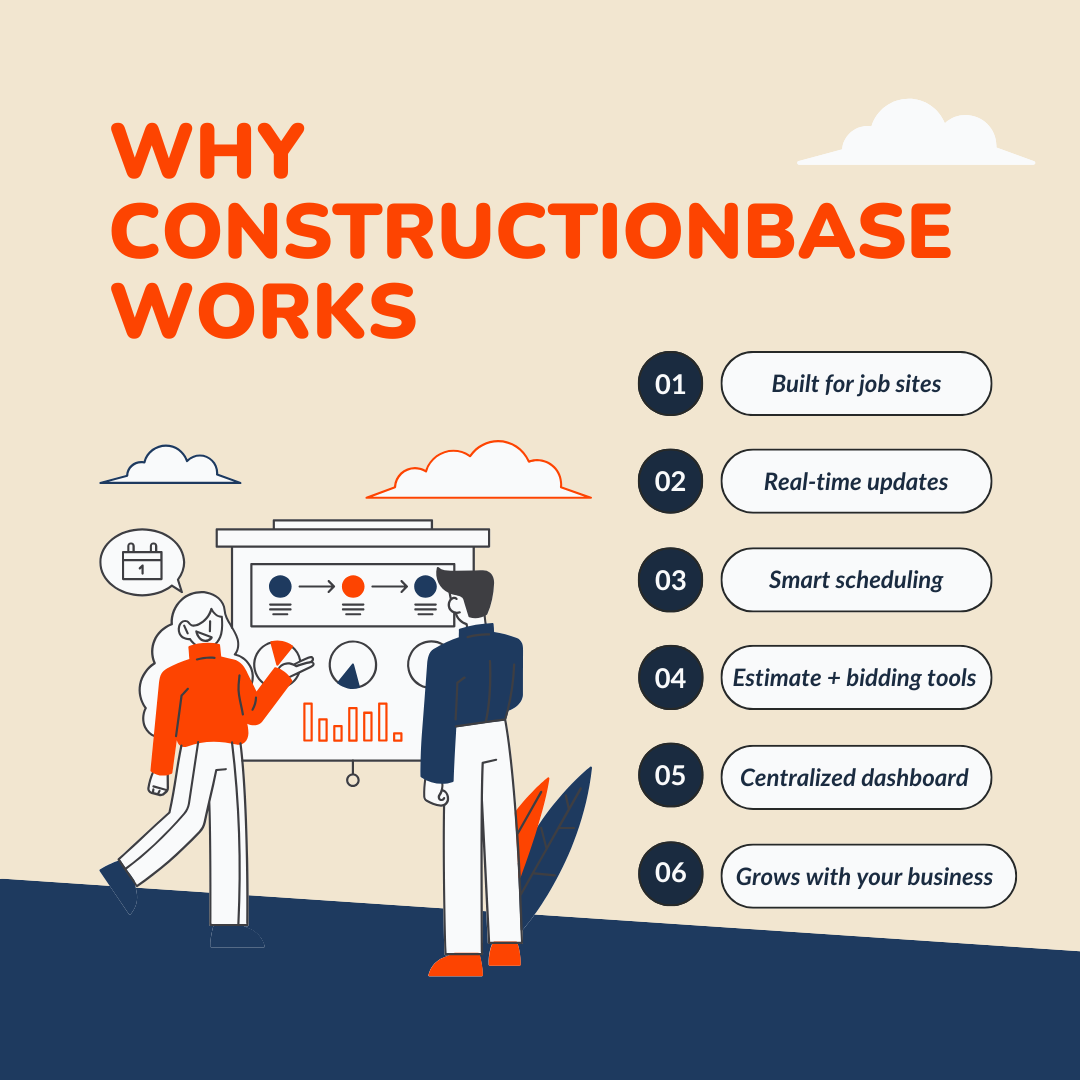
Constructionbase isn’t a rebranded CRM trying to fit into construction.
It was built from the ground up for the realities of job sites, subcontractors, client demands, and field teams.
- Full project lifecycle support: Unlike generic platforms, Constructionbase works like a builder's pipeline CRM, guiding you from the first lead to final handover with zero guesswork.
- Real-time updates and communication: Teams stay connected on-site and off-site with mobile-first tools that prevent delays.
- Smart scheduling: Features like live scheduling and task tracking turn project planning into a real-time, team-wide effort.
- Precise estimates and competitive bidding: Automated estimating saves time and helps you submit faster, win more, and confidently build.
- Centralized document and task tracking: No more jumping between folders, emails, or spreadsheets. Constructionbase keeps everything accessible and organized.
- Scales with your team: Whether you’re managing three or thirty projects, the system grows with you, with no workarounds or breakdowns.
It’s not just software, it’s how modern construction firms stay sharp, save time, and win more work.
Optional? Not Anymore
The construction industry is highly competitive, with numerous companies competing for the same projects. This competition compels businesses to reduce prices and profit margins, which affects their overall profitability.
In today’s construction landscape, CRM isn’t an upgrade. It’s a necessity.
Without one, your team will lose leads and struggle to keep up. With the right CRM, everything from bidding to handover runs smoother, faster, and with fewer mistakes.
If you’re making the switch, make sure it’s built to fit how your team works.
Still stuck in spreadsheets? It’s time to stop settling.
Constructionbase is built for crews like yours. Fast-moving, practical, and ready to grow.
Book a demo today and see how Constructionbase can transform your construction business's operations, scale, and wins.
FAQs
1. Can a Construction CRM help manage multiple projects at once?
Yes. Good CRMs like Constructionbase are built to handle multiple projects with separate timelines, budgets, documents, and teams, without things getting messy.
2. How does a CRM improve communication in construction teams?
It creates a centralized system where everyone, construction contractors, sales, admin, project managers, and site supervisors, can share updates, track tasks, and stay on the same page in real time.
3. Does a Construction CRM help generate more leads?
Yes. With built-in pipeline management, follow-up automation, and customizable proposals, you stay on top of leads and increase your close rates.
4. How fast can my team learn to use it?
The best CRMs are simple, with intuitive dashboards and minimal training time. Look for platforms that offer support, onboarding, a customer portal, and a learning curve that fits your team’s pace.
Have questions or need personalized advice?
Talk to an Expert Today and let our construction specialists guide you to success.


